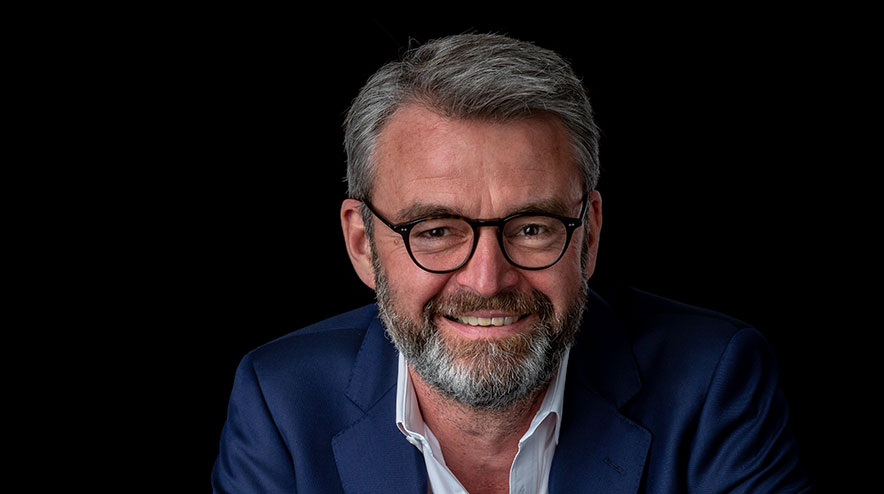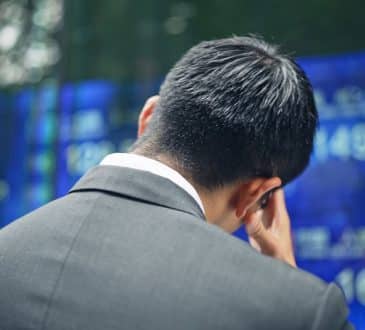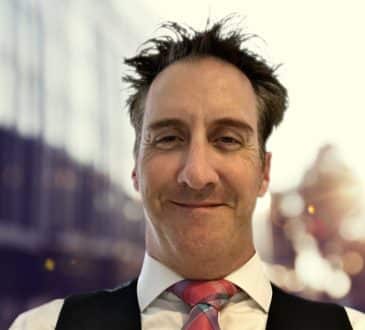Investing in the future

When you’ve been in business a few years, you get used to changing. Processes get updated. Cultures adapt. Attitudes, quite rightly, are examined and evolved. A key driver to this of course is technology. And you really know you’ve been around for a while when things you still think of as new are consigned to history.
It’s quite something to reflect on this now – but when I started my career in the late 1980s there was no such thing as email. We still used telex, and the first paper-spewing telefax machine was just about to be installed. When the first Apple Macintosh hit the desk of the agency’s CEO, it represented a revolution. And so, much to my excitement began the age of email. Now, as platforms like Slack exert their dominance, I find myself often cast as the greybeard reluctant to let go of legacy tech. Email is fast becoming the fax of the 21st Century.
There is much I won’t miss about email-dominated culture. The lengthy chains of CCs; the endless reply-all’s; the hours spent in pursuit of that elusive goal, the empty inbox. The irony of course is that email was supposed to herald a new world of increased productivity, seamless communication, and, of course, the utopian dream of the paperless office.
It’s been a while since I’ve seen one, but ten years or so ago it was pretty standard for people to add an earnest entreaty to their email signature to ‘please consider the environment and avoid printing this email’. Quite apart from why it might be necessary to have a hard copy of an email (I’m racking my brain, but the logic of that is lost to the mists of my memory), what I think is really interesting about that request is what it reveals about the assumptions and attitudes of the time about environmental responsibility.
In a way, I’m almost nostalgic for those days. Paper and printing = bad, because… well, it’s obvious: cutting down trees is destructive. Email and digital are good because… well it’s equally obvious, they’re clean and don’t create waste or consume trees. In fact, as the example of paper-backs versus e-books shows, it’s more complicated than that. Digital consumption may be invisible, but that doesn’t mean it’s impact-free.
As someone who leads a digital media business, this is something that’s been front of mind for some time. Few business leaders would argue against curtailing their air miles – we know that burning kerosene at 30,000 feet is a destructive thing to do. But are many (or any of us) aware that the internet is responsible for a similar volume of emissions as the entire global airline industry? All those billions of servers, CPUs, miles of fiber, and glowing screens have to get their energy from somewhere.
We’ve all seen, during the pandemic, the internet, and digital services shift in terms of global consciousness to be seen not as a desirable extra, but as an essential service, like water or heating. The world can’t operate without it – and indeed, from enabling flexible working to intelligent supply chains, it’s enabling our transition to a net-zero future. So, if we can’t live without our digital infrastructure, how do we limit – and ultimately eliminate ¬– its environmental impact?
The key thing of course is the transition to renewable energy. As enterprise energy consumers we can use our buying power to select providers who source their supply from non-fossil origins. But there are also things we can do practically, today.
As business leaders, we can move much more quickly and nimbly than politicians can. It’s up to us to use the power of investment and the ability to drive organizational change to be an active part of the solution. Time is too short to simply sit back and wait for regulation to determine our actions.
At Incubeta, we’ve established an initiative called ‘Growing a Better Future’, which combines investment in environmental initiatives with education to establish a program for progress.
Chief among these was the decision we took as a company to evaluate and mitigate the carbon footprint of our core services: digital advertising campaigns.
To know how to address the problem, we needed to understand its scale, so we put a task force together, who reported back that a single typical online ad campaign emits up 5.4 tonnes of carbon dioxide – which is almost half (43%) of the average annual carbon footprint of a person in the UK.
The next challenge was to explore how this could be mitigated. We are a service business, and exist to solve problems for our clients – not create them – so we knew that any initiative and investment would need to begin with us. We chose to engage with an organisation called Ecologi, who invest in gold standard endorsed climate projects all over the world.
The steering group made a strong case to me, but really it was a no-brainer for Incubeta to choose to make this investment, and offer our clients the option that we will offset the full climate impact of the work we do together through Ecologi.
Not all clients have yet taken up the offer, chiefly because they are already engaged in their own similar climate initiatives. But those who have, have embraced it enthusiastically. And it’s certainly part of our financial planning for the full climate impact of our work to be mitigated. I don’t see this as a cost, it’s an investment in our business as well as the planet, which will ultimately pay back in shareholder value.
We’ve all been on our own journeys with regard to sustainability over the past few years as the climate crisis has moved up the agenda. As an individual, it’s clear to me that the greatest risk is assuming somebody else will take action. The same principle, surely, must apply to the decisions we take as business leaders.
Written by Lars Lehne, Group CEO at Incubeta.
Have you read?
# Best CEOs In the World Of 2022.
# TOP Citizenship by Investment Programs, 2022.
# Top Residence by Investment Programs, 2022.
# Global Passport Ranking, 2022.
# The World’s Richest People (Top 100 Billionaires, 2022).
Add CEOWORLD magazine to your Google News feed.
Follow CEOWORLD magazine headlines on: Google News, LinkedIn, Twitter, and Facebook.
This report/news/ranking/statistics has been prepared only for general guidance on matters of interest and does not constitute professional advice. You should not act upon the information contained in this publication without obtaining specific professional advice. No representation or warranty (express or implied) is given as to the accuracy or completeness of the information contained in this publication, and, to the extent permitted by law, CEOWORLD magazine does not accept or assume any liability, responsibility or duty of care for any consequences of you or anyone else acting, or refraining to act, in reliance on the information contained in this publication or for any decision based on it.
Copyright 2024 The CEOWORLD magazine. All rights reserved. This material (and any extract from it) must not be copied, redistributed or placed on any website, without CEOWORLD magazine' prior written consent. For media queries, please contact: info@ceoworld.biz
SUBSCRIBE NEWSLETTER








